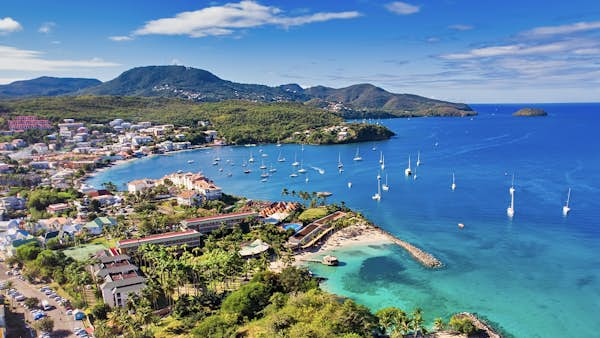Combine French appeal with West Indian joie de vivre, and also you get Martinique, a pleasant island within the Lesser Antilles.
Right here, rugged volcanic landscapes give option to lush rainforests, hovering peaks and postcard-perfect seashores, with the towering Mont Pelée volcano as a strong image of nature's would possibly.
From sipping a ti' Punch to dive into Fort-de-France's bustling markets, first-time guests shall be met with an island steeped in a wealthy mélange of African, French and West Indian tradition, layered historical past and limitless journey.
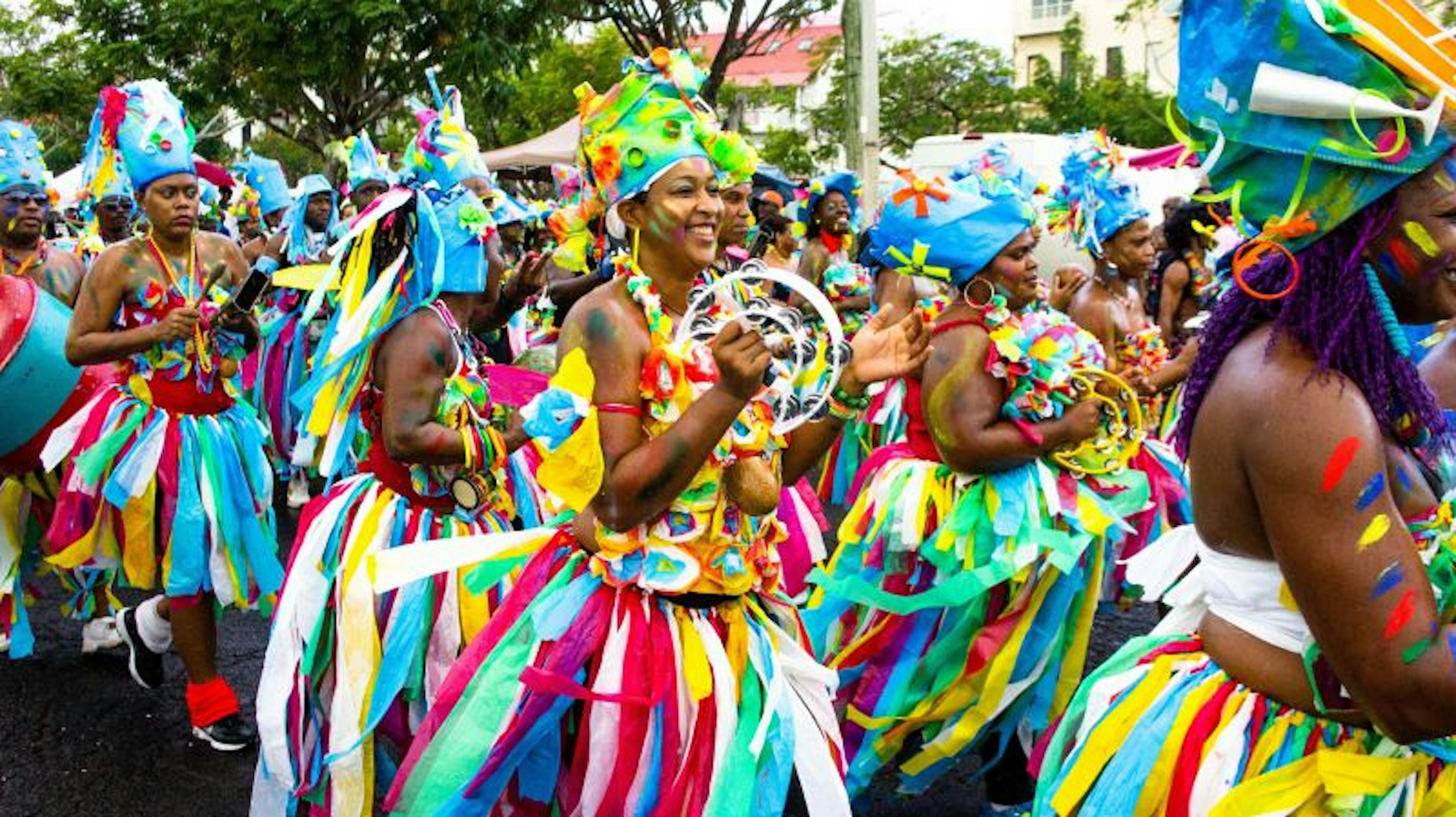
When ought to I am going to Martinique?
The great thing about journey to the Caribbean is you could go at nearly any time of the 12 months.
Martinique's dry season runs from December to about mid-April, bringing heat, sunny climate and calm waters best for swimming and snorkeling.
These nice circumstances coincide with peak season, so that you'll discover many different guests in search of to flee colder climates – and driving up resort costs accordingly.
The moist season begins in June and lasts till November. Throughout this era, there's a better probability of occasional showers, however you'll reap higher charges and availability as fewer vacationers arrive. It's additionally the very best time to go to Martinique's botanical gardens, as they're extra-lush, with intense pops of inexperienced and flowers in full bloom.
Touring from mid-February to early March? You're in for a deal with. Martinique hosts a conventional carnival that departs from the famously sequined revelry of Rio de Janeiro or Trinidad & Tobago.
Martinique’s”vaval” is infused with a spirit of resistance that dates to the pageant's earliest days. Traditions embrace the nèg gwo siwoduring which contributors characterize escaped slaves by overlaying themselves in molasses and charcoal; the Samedi Gras carnival-queens parade; clay males; the grotesque pink devils; and – my private favourite – the vide pajamasprimarily J'ouvert in sleepwear.
How a lot time ought to I spend in Martinique?
Martinique caters to each thrill seekers as for these craving a tranquil and relaxed getaway. Whilst you might fairly get a satisfying style of the island's magic in three to 4 days, plan on at the least a week-long keep for unhurried exploration.
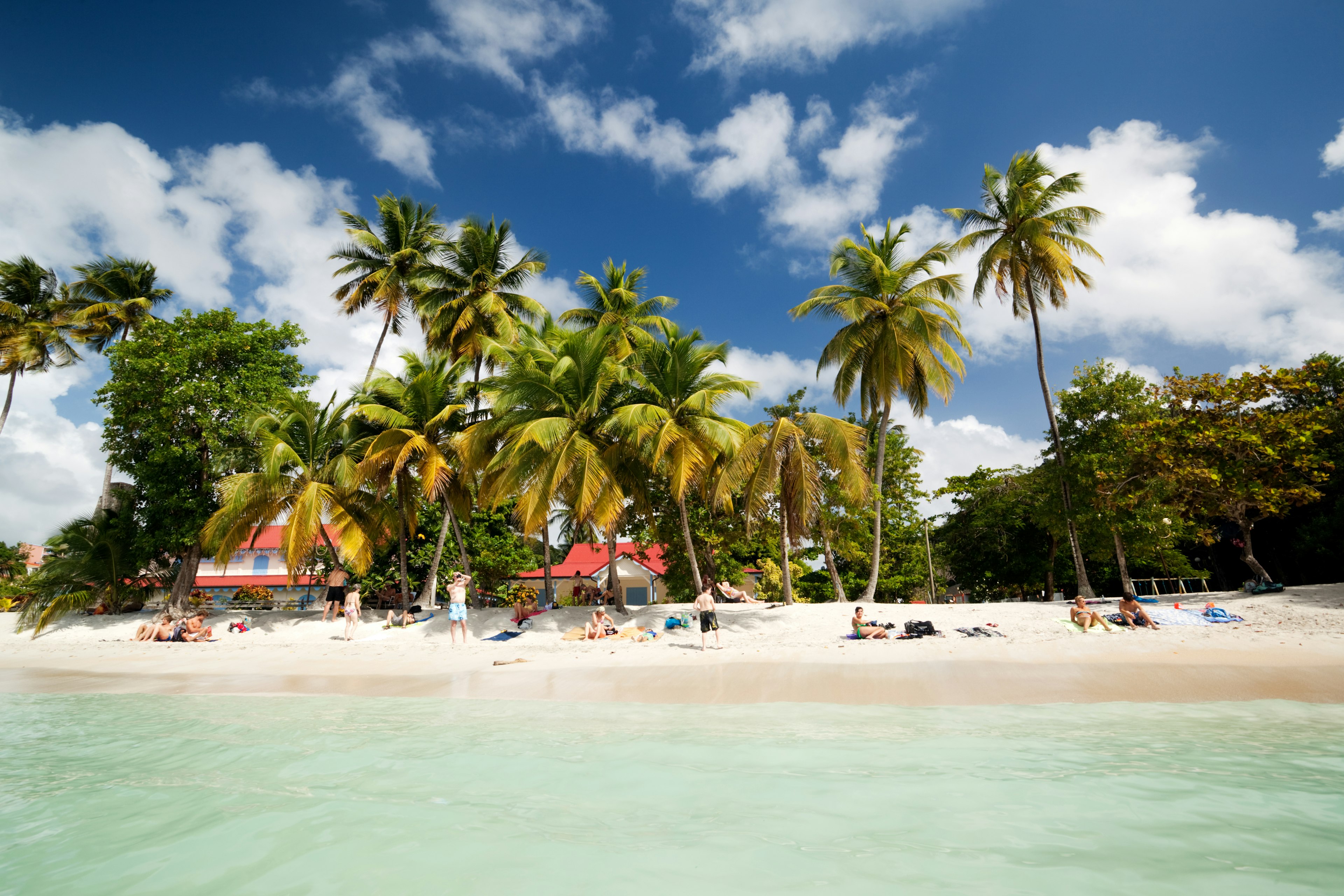
Is it simple to get in and across the vacation spot?
Guests flying in from France, Montréal or Miami will get pleasure from direct service into Martinique Aimé Césaire Worldwide Airport. The airport is simply quarter-hour from the capital, and a 40-minute drive from Les Trois-Îlets, a preferred seashore city.
Alternatively, the Specific des Îles operates a ferry service to the island a number of instances every week from neighboring Dominica, Guadeloupe and St Lucia.
Martinique's Transport en Commun en Website Propre (TCSP) is a contemporary bus service that serves the Fort-de-France and Le Lamentin areas. Different giant buses (or grand buses) join the island – however locals rely totally on minivans marked “TC” (taxi collectif), with locations displayed within the entrance window.
In Fort-de-France, the principle bus depot is at Pointe Simon, close to the harbor, with different stops marked by blue “Arrêt bus” indicators. There aren’t any mounted schedules; buses usually depart when full. Fares begin at €1.50.
Service is restricted on Sundays and late at evening, at which instances you need to think about hiring a taxi. This can be a a lot pricier choice – anticipate to pay anyplace from €30 to €70, relying in your vacation spot, plus a 40% surcharge on fares between 8pm and 6am.
Whereas renting a automotive is essentially the most handy choice, drivers should meet sure age and license necessities. For instance, Sixt requires drivers to be 21 years previous and have a legitimate license that has been in impact for at the least one 12 months.
Ferries known as vedettes depart from Fort-de-France's Rue de la Liberté and go to the resort cities of Les Trois-Îlets, Pointe du Bout, Anse Mitan and Anse à l'Ane. Costs begin at €7, and the journeys usually take 20 to half-hour.
Many roadways lack sidewalks or footpaths, so be cautious of approaching visitors if you happen to select to stroll.
High issues to do in Martinique
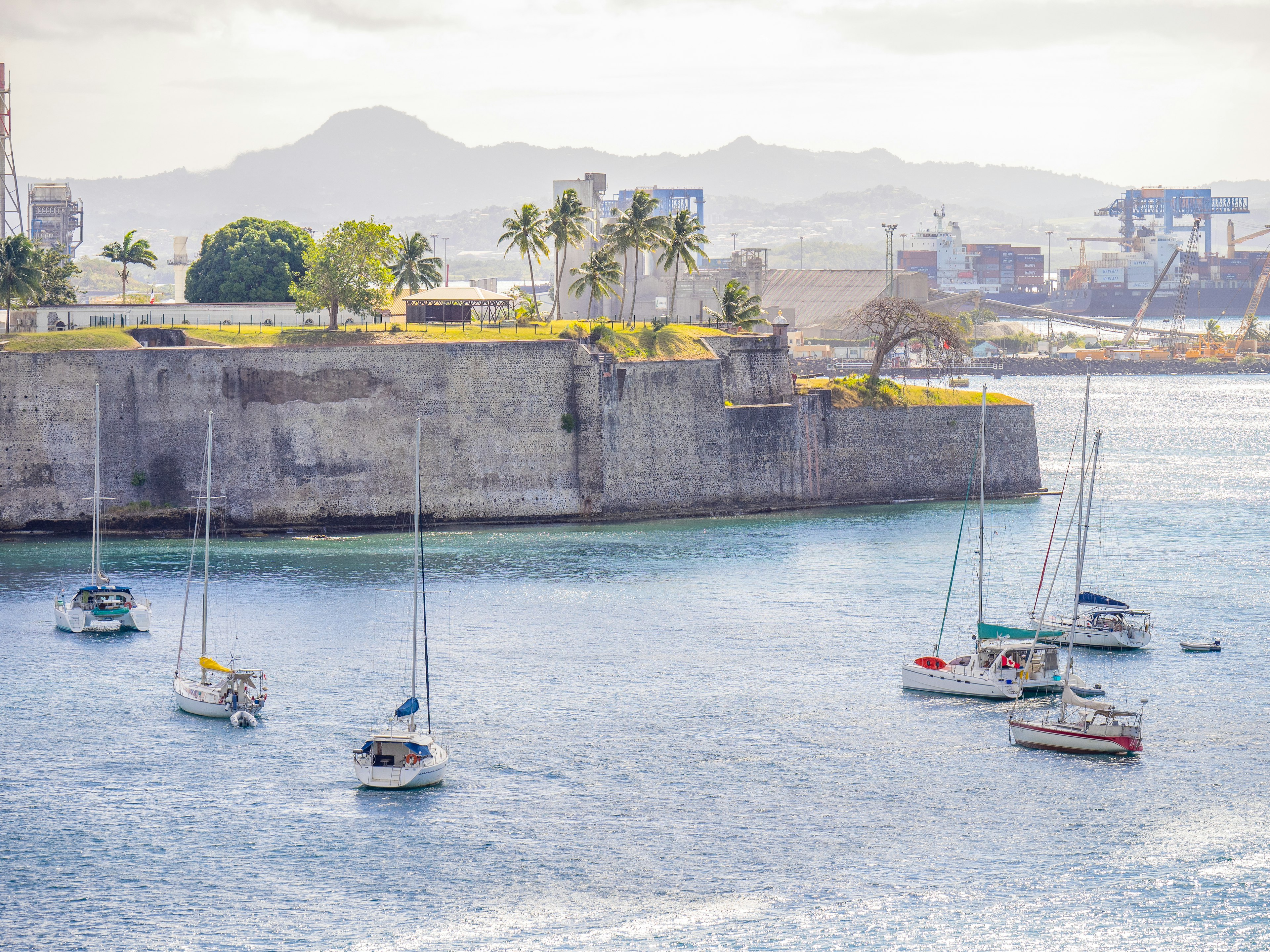
Go to Fort-St-Louis for a historical past lesson and stellar views
Fort-St-Louis pulls double obligation as an iconic landmark for historical past buffs and a can't-miss attraction for first-timers. Inbuilt 1640, this coastal stronghold has been an necessary a part of Martinique's narrative ever since.
Though a lot of the unique construction has modified, the fort nonetheless instructions a hanging presence within the metropolis's middle, only a brief stroll from La Savane and the ferry terminal.
The rooftop views of town and harbor are unbeatable – and the story of the Vauban-style fortress, associated throughout a guided tour, is fascinating.
It's nonetheless an lively French naval base, so solely sure areas are open to guests, and pictures of army personnel are prohibited.
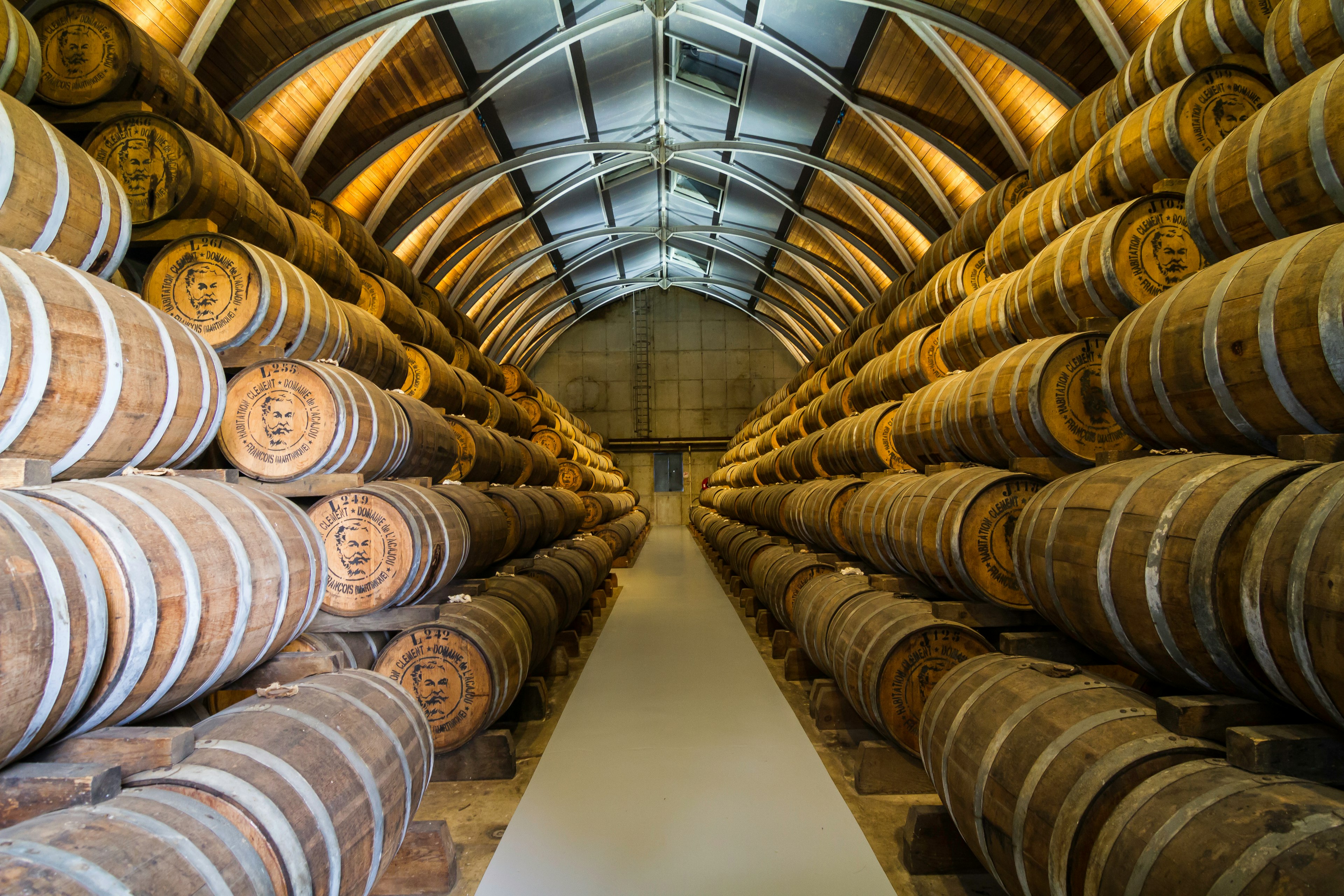
Sip on some candy rum
Martinique's signature rhum agricole is made out of recent sugarcane juice quite than molasses, setting it other than different types of rum. As one of many world's premier sugarcane-growing areas, the island holds a prestigious AOC designation.
Established in 1842 and one among simply two remaining family-run distilleries in Martinique, Distillerie La Favourite is understood for producing a few of the island's best white rhumcharacterised by its pure sweetness and citrusy notes.
In Le François, L'Habitation Clément is a former distillery–turned–museum the place you’ll be able to see firsthand how sugarcane turns into the well-known rhum agricole. For a extra intimate expertise, go to Distillerie Depaz, perched on the base of Mont Pelée on the island's northwest coast.
Discover your slice of paradise
Les Anses d'Arlet is one among Martinique's most photogenic spots, with a picturesque pier that connects Église St-Henri to the bay. The city's laid-back vibe and serene seashores make it excellent for a day of swimming, snorkeling and sunbathing.
Anse Noire's volcanic black sand contrasts fantastically with the turquoise waters, whereas close by Anse Dufour boasts golden sands and plentiful sea turtles.
Plage du Diamant, Martinique's largest seashore, reveals incomparable views of the rocky island of Rocher du Diamant, whereas Petite Anse stays peaceable and secluded. Grande Anse des Salines, with its white sand and calm waters, is ideal for households and a must-visit for seashore lovers.
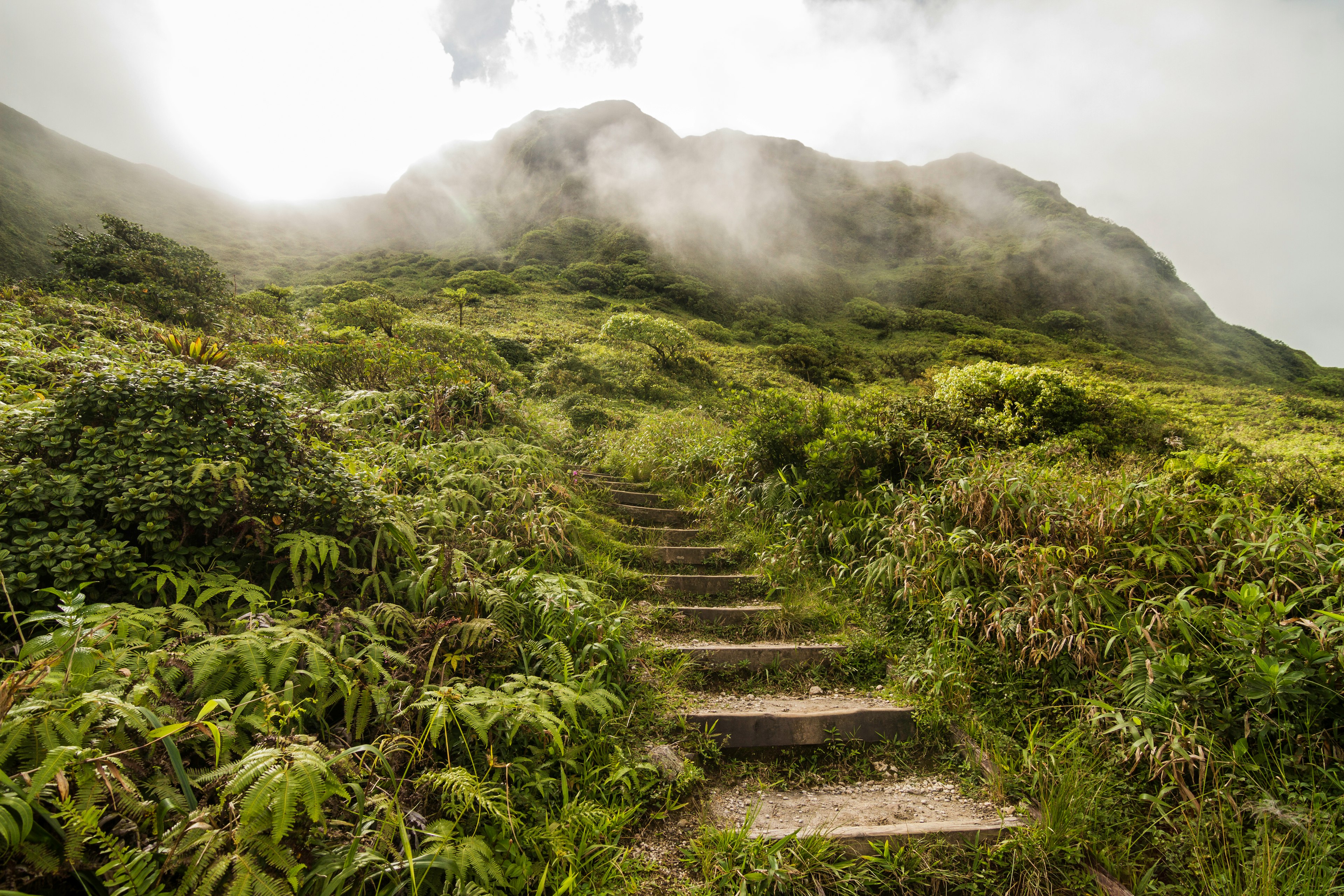
Hike the paths of Mont Pelée
Mont Pelée dramatically formed Martinique's panorama when it erupted in 1902, wiping out the city of St-Pierre. Immediately, the lively volcano entices nature lovers with its scenic climbing trails and beautiful panoramas.
The favored L'Aileron path is a 4-hour round-trip hike, whereas the Grande Savane presents a 2-hour reasonable trek alongside ridgelines with views of St-Pierre. Starting in Désiles, the Morne Macouba path takes you thru a tropical rainforest with vistas of the Macouba Valley.
Morning hikes present the very best views earlier than clouds settle in. Make sure you carry water, rain gear and layers for cooler temperatures and occasional rain.
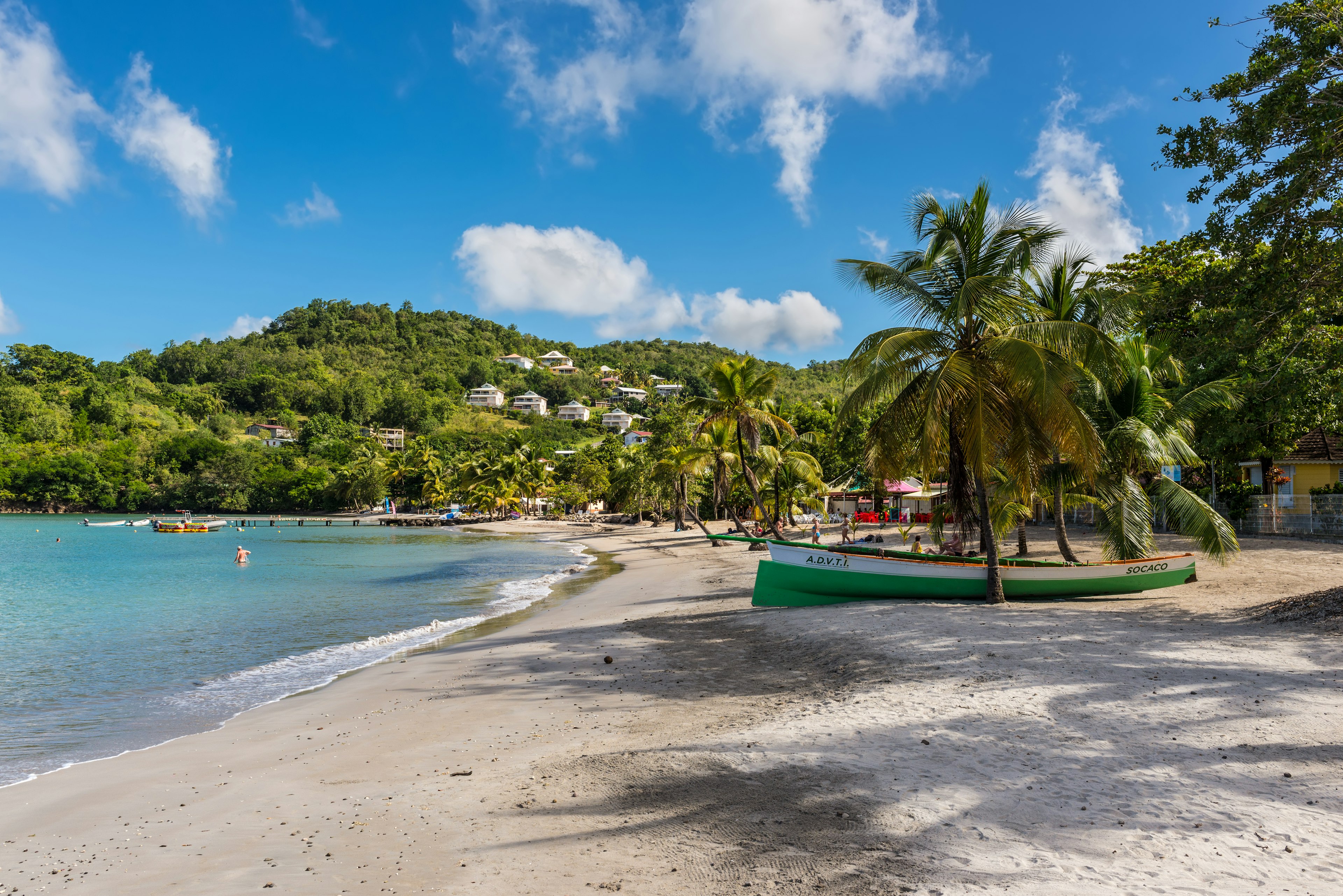
My favourite factor to do in Martinique
As a St Lucian, I’ve a deep affection for my neighbors in Martinique. On clear days, the island is seen from Pigeon Island, and it's solely an hour away by ferry.
I am keen on Les Trois-Îlets, the place bone-white sand meets impossibly turquoise waters. Simply steps away, you'll uncover quaint wine bars and eating places that evoke the essence of Frenchness. Whereas it might appear touristy, there's an indescribable appeal that captivates me. Maybe you would possibly name it a je ne sais quoi.
How a lot cash do I would like for Martinique?
Since Martinique is a part of France, the euro is the official foreign money. Whereas some companies take US {dollars}, guests ought to at all times have euro payments with them.
-
Nightly lodging: €50-180
-
Restaurant meal for 2: €25–120
-
Public transportation: €1.50-10
-
Personal taxi service: €30-90
-
Glass of ti' punch: €2-8
-
Cup of espresso or tea: €3–7


